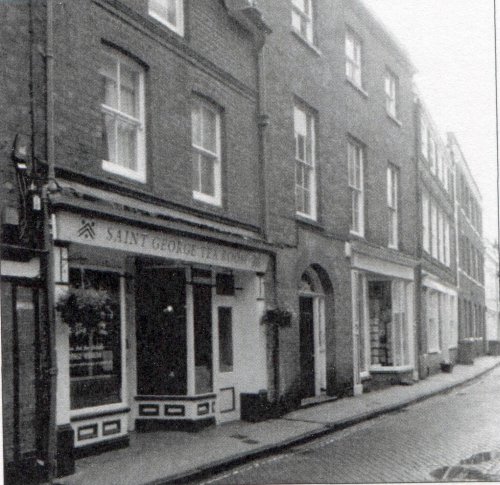TrustNews Mar 20
Lessons for Winchester from Main Street America
The Heritage Trust Network (HTN) is an umbrella body for 300+ groups, and some individuals, concerned with building conservation. It evolved some three years ago from the Association of Preservation Trusts, and the majority of its members are still building preservation trusts, bodies dedicated to the rescue, repair and reuse of what are fondly called the basket cases, the historic buildings for which there is no other solution. The success record is long and proud - examples can be found on the HTN website: heritagetrustnetwork.org.uk

Each year HTN holds a national conference, rotating, as it covers the whole of the UK, around the four countries. Last year the conference was held in Derry/Londonderry, and hosted by the remarkable inner City Trust, set up in the 1970s to mitigate some of the worst damage of the Troubles. The title, cleverly and appropriately, was Heritage Transforming Neighbourhoods, and the keynote speaker was the remarkable Professor Ed McMahon, from Main Street America. What he had to say was not only highly relevant to the attendees but also to civic bodies like the City of Winchester Trust.
Main Street America is not, as I'd supposed, a body aiming to counter the effects of Wall Street (“Main Street, not Wall Street" being a slogan following the crash of Lehman Brothers and the subsequent massive bail-outs) but a body established by the National Trust for Historic Preservation in 1980. Its mission, they say, is to “lead a movement committed to strengthening communities through preservation-based economic development in older and historic downtowns and neighbourhood commercial districts". Working with a nationwide network of coordinating programs and local communities, Main Street has helped over 2,000 communities across the country bring economic vitality back downtown, while celebrating their historic character, and bringing communities together.

I could write pages about what Professor McMahon said in his presentation, but will restrict myself to some particularly significant quotes.
“It is a mistake to think that economic revival is always about “the one big thing.“ America’s communities are littered with projects that were sold as the “silver bullet" solution to a city’s economic woes. Whether it was a festival marketplace, a convention centre, a casino, a new factory or a big box store out on the highway, locality after locality has followed the copycat logic of big project mania. However, successful economic development is rarely about the one big thing. More frequently, it is about lots of smaller things working synergistically together in a plan that makes sense. Main Street demonstrates the power of small.”
“Twenty-first century economic development focuses on what a community has, rather than what it doesn't have. Too many communities spend all their time and money on business recruitment. They build an industrial park and then try like crazy to attract a plant, factory or distribution centre to move there. The few communities that are successful at this strategy usually accomplish it by giving away the store."

“All development is not created equal. Some development projects will make a community a better place to live, work and visit. Other projects will not. The biggest impediment to better development in many communities is a fear of saying “no” to anything. In my experience, communities that set low standards, or no standards, will compete to the bottom. On the other hand, communities that set high standards will compete to the top. This is because they know that if they say no to bad development, they will always get better development in its place."
“If you design a community around cars, you get more cars, but if you design a community around people you get more people and better places."
It was an inspiring presentation; l doubt there was a delegate there who didn't go home vowing to make their own community a better, more people-centred, place.
Professor McMahon has also written about tourism, in the journal LandWrites. He asks, “If a destination becomes too crowded, too commercial, or too much like every other place, then why should tourists bother to go there?” The first of his Ten Principles for Responsible Tourism is “Preserve and restore historic buildings and landscapes." When Historic England reports over 200m heritage-related trips to England alone in 2018, worth over £17bn*, it's hard to argue with the professor.
Judith Martin
* from Heritage Counts: Heritage and the Economy, 2019
